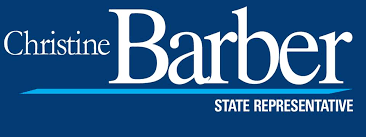Making Corporations Pay Their Fair Share
To fund critical services like education, public transportation, and other public services, Massachusetts must raise new forms of revenue--but it is essential that this revenue does not fall on the backs of low- and moderate-income workers. Corporations should pay their fair share in taxes. Christine has been a tireless advocate for raising progressive revenue, and filed legislation to close corporate loopholes.
Taxing the GILTI
The Problem: The COVID-19 pandemic has caused state revenues to decline to the tune of $4-6 billion, causing real consequences for our schools, public services, and our COVID-19 response. Many large corporations, however, take advantage of loopholes to pay fewer taxes. These profitable, multinational corporations shift income generated in the U.S. to offshore accounts. In a 2017 federal tax bill, lawmakers identified this income as Global, Intangible Low-Taxed Income (GILTI). The GILTI provision allows the federal government and states to recoup tax dollars on income that has been shifted offshore. However, MA still allows businesses to take advantage of this loophole.
The Bill: Christine filed HD5132 to close this corporate loophole and raise needed revenue. This bill would "recouple" the MA tax code to the federal GILTI provision, bringing in as much as $400 million in revenue. GILTI only applies to large, multinational, and highly profitable corporations with offshore holdings.
Media & Reports
Somerville Times: "Rep. Barber files bill to close corporate loopholes, raise progressive revenue, and fill budget gaps"
Massachusetts Budget & Policy Center: "Taxing the GILTI: By Reversing 2018 Policy, MA can Fight Corporate Tax Dodging & Raise $450 Million a Year"
Somerville Journal: “Closing corporate loopholes - a solution to COVID-19 economic crises”
